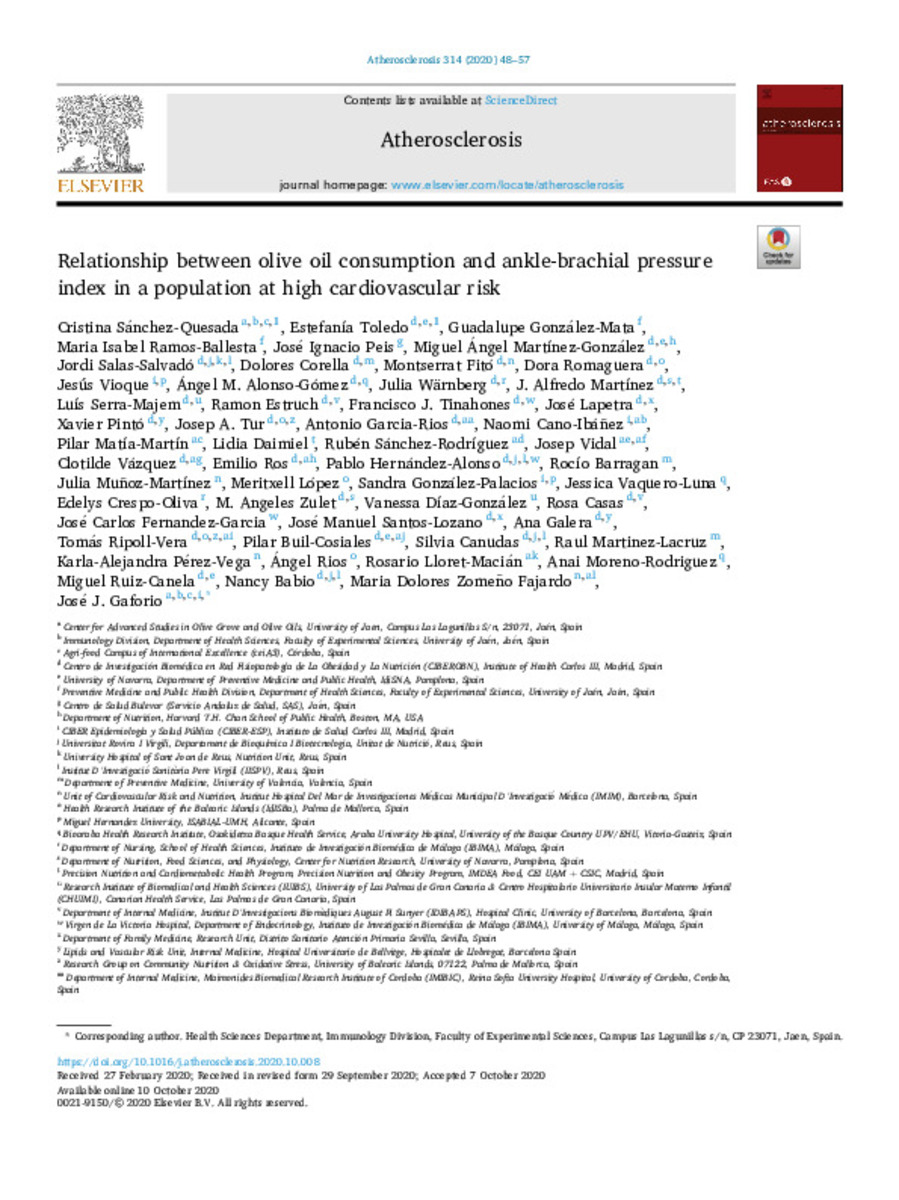Relationship between olive oil consumption and ankle-brachial pressure index in a population at high cardiovascular risk
Keywords:
Olive oil
Virgin olive oils
Ankle-brachial pressure index
Peripheral artery disease
PREDIMED-Plus trial
Olive pomace oil
Citation:
Sánchez-Quesada, C. (Cristina); Toledo, E. (Estefanía); Gonzalez-Mata, G. (Guadalupe); et al. "Relationship between olive oil consumption and ankle-brachial pressure index in a population at high cardiovascular risk". Atherosclerosis. 314, 2020, 48 - 57
Statistics and impact
0 citas en

0 citas en

Items in Dadun are protected by copyright, with all rights reserved, unless otherwise indicated.








